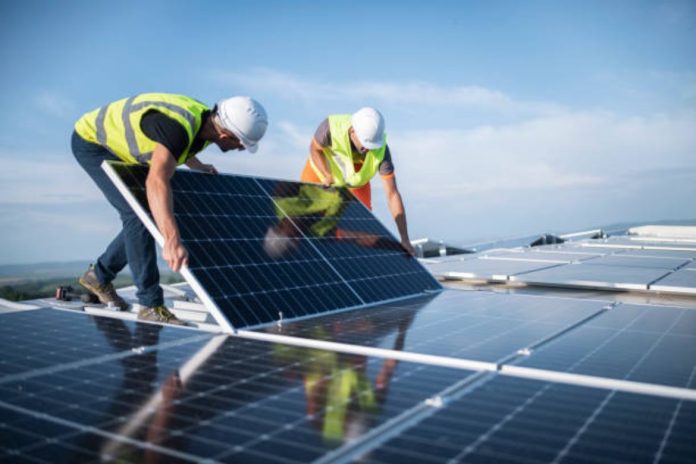In recent years, there has been a growing movement towards renewable energy sources as a means to combat climate change and reduce our environmental impact. Solar energy, in particular, has emerged as a viable and sustainable solution for homeowners looking to decrease their carbon footprint and contribute to a cleaner environment. This essay explores the specific environmental benefits of Richmond, Virginia solar installation and how it can make a positive impact on both local and global scales.
Understanding Solar Energy
Solar energy is derived from the sun’s radiation, which can be converted into electricity or used for heating purposes through the use of solar panels. These panels, also known as photovoltaic (PV) panels, capture sunlight and convert it into usable electricity using semiconductor materials that generate an electric current when exposed to sunlight. This renewable energy source is abundant and inexhaustible, making it a sustainable alternative to fossil fuels.
Environmental Benefits of Solar Panels in Richmond, Virginia
- Reduction in Greenhouse Gas Emissions: Richmond, like many cities across the United States, relies heavily on electricity generated from fossil fuels such as coal and natural gas. These conventional energy sources emit significant amounts of greenhouse gases (GHGs), particularly carbon dioxide (CO2), which contribute to global warming and climate change. By installing solar panels on homes in Richmond, homeowners can reduce their reliance on fossil fuels and decrease the amount of CO2 emissions associated with electricity generation. This transition to clean, renewable energy helps mitigate climate change and improves air quality in the region.
- Improvement in Air Quality: The burning of fossil fuels for electricity production not only releases greenhouse gases but also emits pollutants such as sulfur dioxide (SO2), nitrogen oxides (NOx), and particulate matter (PM). These pollutants contribute to air pollution, smog formation, and respiratory illnesses in urban areas like Richmond. Solar energy, on the other hand, generates electricity without producing any air pollutants or emissions, thereby improving local air quality and reducing the environmental health risks associated with poor air quality.
- Conservation of Natural Resources: Richmond and its surrounding areas are home to diverse ecosystems and natural habitats that are susceptible to the environmental impacts of resource extraction and energy production. Solar energy is a renewable resource that harnesses the power of the sun, reducing the need for non-renewable resources such as coal, natural gas, and oil. By conserving these finite resources, homeowners in Richmond can help protect local ecosystems, reduce habitat destruction, and promote sustainable land use practices.
- Support for Renewable Energy Transition: Installing solar panels on homes in Richmond by a top-rated Virginia solar company supports the transition to a clean energy economy and reduces dependence on imported fossil fuels. This shift towards renewable energy sources enhances energy security and resilience, particularly in regions vulnerable to disruptions in energy supply or price volatility. By diversifying the energy mix with solar power, Richmond can strengthen its energy independence and promote local economic growth through job creation in the renewable energy sector.
- Reduction in Urban Heat Island Effect: Urban areas like Richmond experience higher temperatures compared to surrounding rural areas (say like Culpeper solar installation projects) due to the urban heat island effect, which is exacerbated by conventional building materials and heat-generating activities. Solar panels can help mitigate this effect by absorbing sunlight and converting it into electricity, thereby reducing the amount of heat absorbed by buildings and surrounding surfaces. This contributes to cooler and more comfortable urban environments, improves energy efficiency in buildings, and reduces the demand for air conditioning during hot summer months.
- Promotion of Environmental Stewardship: Embracing solar energy in Richmond promotes environmental stewardship and encourages sustainable practices among homeowners, businesses, and communities. By installing solar panels, residents demonstrate a commitment to reducing their environmental impact and preserving natural resources for future generations. This collective effort contributes to a more resilient and sustainable community in Richmond, fostering a sense of environmental responsibility and civic engagement among its residents.
Financial Benefits and Incentives:
Beyond the environmental advantages, installing solar panels on homes in Richmond can also provide financial benefits for homeowners. These include:
- Energy Cost Savings: Solar panels can significantly reduce or eliminate monthly electricity bills, depending on the size of the solar installation and household energy consumption.
- Return on Investment: Over time, the savings on electricity bills can offset the initial cost of purchasing and installing solar panels, providing a return on investment through energy savings.
- Government Incentives: Federal and state governments offer financial incentives, tax credits, and rebates to encourage homeowners to adopt solar energy. These incentives can help lower the upfront cost of solar installations and improve the economic feasibility of solar projects in Richmond.
Conclusion:
In conclusion, installing solar panels on homes in Richmond, Virginia, offers numerous environmental benefits that contribute to a cleaner, healthier community and planet. From reducing greenhouse gas emissions and improving air quality to conserving natural resources and supporting renewable energy transition, solar energy plays a crucial role in mitigating climate change and promoting sustainable development. As Richmond continues to embrace clean energy solutions, homeowners have an opportunity to make a positive impact by harnessing the power of the sun and reducing their carbon footprint. By investing in solar energy, residents of Richmond can lead by example and inspire others to adopt renewable energy solutions, creating a more resilient and sustainable future for generations to come.









